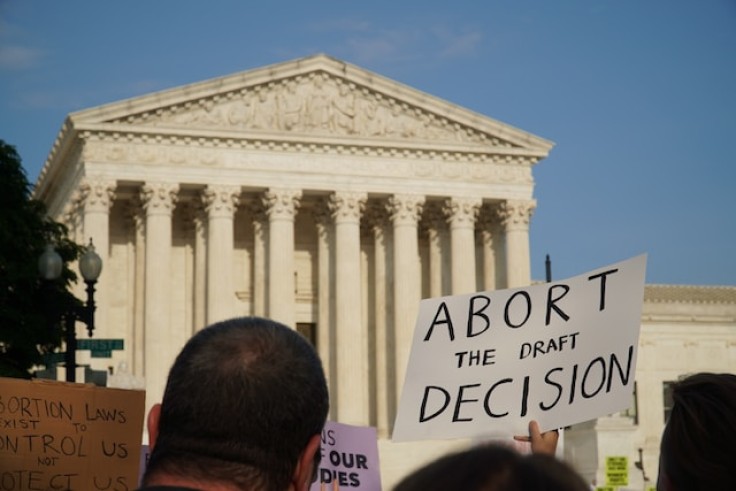
Healthcare providers and an abortion rights group have taken legal action against Alabama, seeking to halt the state's efforts to criminally prosecute individuals who assist others in traveling out of state to obtain abortions.
In a lawsuit filed in a federal court in Montgomery, the West Alabama Women's Center, the Alabama Women's Center, and medical director Yashica Robinson contend that such prosecutions would infringe upon the constitutional right to interstate travel in the United States. Simultaneously, the Yellowhammer Fund has filed a separate, similar lawsuit, adding its voice to the legal challenge.
Abortion Rights and Access to Reproductive Healthcare in the Spotlight
According to MSN, the legal battle follows the enactment of Alabama's Human Life Protection Act in 2019, a law that imposed near-total bans on abortions. Subsequently, the U.S. Supreme Court overturned its landmark decision in Roe v. Wade, which had previously guaranteed abortion rights nationwide.
Before the Supreme Court's decision, the healthcare providers involved in the lawsuit had been providing abortion services in Alabama, while the Yellowhammer Fund had been assisting individuals in raising funds to access abortions in states where they are legal.
According to Reuters, both lawsuits cited comments made by Alabama Attorney General Steve Marshall in an August 2022 radio interview, during which he suggested that individuals aiding others in traveling to states with legal abortion access could face prosecution as criminal accomplices.
The healthcare providers argue that the threat of prosecution has hindered their ability to provide comprehensive counseling to patients about out-of-state abortion options. Similarly, the Yellowhammer Fund stated that it had been forced to suspend its abortion funding initiatives in Alabama due to the potential legal ramifications.
Robin Marty, the operations director at the West Alabama Women's Center, stressed the negative impact, stating, "When we cannot share information with patients about all of their options during pregnancy, including those options that are legal and available outside Alabama, the physician-patient relationship is put in jeopardy, and our patients are harmed."
In response, Amanda Priest, a spokesperson for Attorney General Marshall, reiterated the state's commitment to enforcing laws protecting unborn life, including the Human Life Protection Act. Priest added that this also includes taking legal action against abortion providers allegedly involved in conspiracies to violate the Act.
The lawsuits have reignited the heated debate over abortion rights and access to reproductive healthcare in the United States. Abortion rights advocates argue that restrictions on abortion services infringe on personal and bodily autonomy. Conversely, proponents of stricter abortion laws believe these measures are necessary to safeguard the sanctity of life.
The outcomes of these legal challenges could significantly impact reproductive rights in Alabama and may have broader implications for similar abortion-related legal battles across the United States. As these cases progress through the courts, both pro-choice and pro-life advocates are closely watching, eagerly anticipating the resolution of this pivotal legal confrontation.
Alabama's Human Life Protection Act, enacted in 2019, represents a notable escalation in the fight over abortion rights. The law effectively bans almost all abortions, with very limited exceptions, such as cases where the pregnant person's life is at risk. It also imposes severe penalties on doctors who perform abortions, including up to 99 years in prison.
Potential Implications of the Lawsuits on Reproductive Rights Nationwide
The law came into effect in 2022 after the U.S. Supreme Court declined to intervene. This decision was met with concern from abortion rights advocates, who interpreted it as a potential signal that the court may be open to reconsidering or overturning Roe v. Wade.
The lawsuits brought by healthcare providers and an abortion rights group against Alabama aim to challenge the criminal prosecution of those who assist others in traveling out of state to access abortions. The legal battle revolves around protecting the right to interstate travel, a fundamental constitutional right, and ensuring access to abortion services for those in need.
The right to travel between states is considered a fundamental right under the U.S. Constitution, protected by the Privileges and Immunities Clause of Article IV. This clause ensures that citizens of one state are entitled to the same rights and privileges as citizens of another state. Therefore, the healthcare providers and the Yellowhammer Fund argue that any efforts to criminalize assistance for out-of-state abortions infringe upon this constitutional right.
Furthermore, the threat of criminal prosecution has tangible effects on healthcare providers and patients alike. The fear of legal consequences prevents providers from fully informing their patients about all available options, limiting their ability to provide comprehensive and accurate healthcare services. Patients, in turn, may face significant obstacles in accessing the care they need, leading to potential harm to their health and well-being.
The legal challenges brought forth by the West Alabama Women's Center, the Alabama Women's Center, and the Yellowhammer Fund are part of a broader nationwide effort to protect and expand abortion rights in the face of restrictive state laws. The outcome of these cases will not only impact reproductive rights in Alabama but also have implications for similar abortion-related legal battles across the United States.
The lawsuits filed by healthcare providers and an abortion rights group against Alabama seek to challenge the criminal prosecution of those who assist others in traveling out of state to access abortions. The legal battle revolves around protecting the right to interstate travel, a fundamental constitutional right, and ensuring access to abortion services for those in need. As the cases unfold, they will undoubtedly contribute to the ongoing national discussion about reproductive rights and the scope of state-level abortion laws. Both sides of the abortion debate await the resolution of this critical legal confrontation with great anticipation.